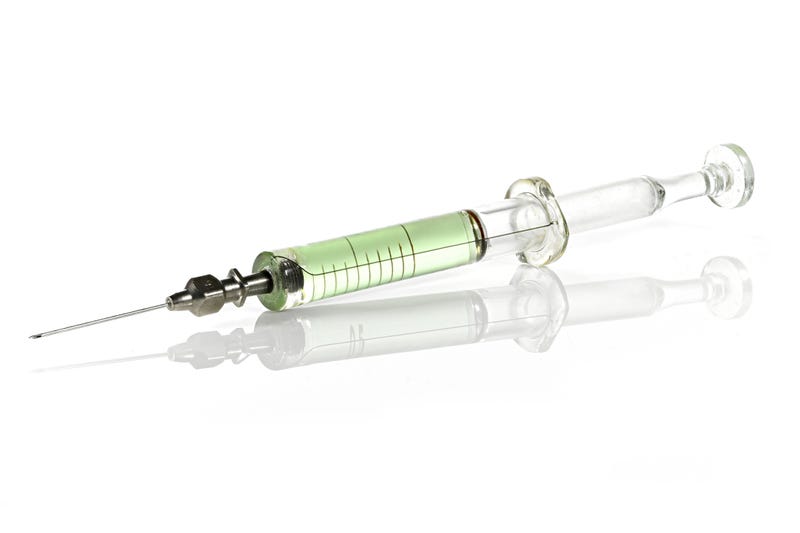
This week, an execution team in Idaho tried and failed eight times to find a vein. They were trying to insert an IV into Thomas Creech, 73, who was served with a death warrant in January.
Creech was returned to his cell after the team failed to find a vein for nearly an hour, per reports.
“This is what happens when unknown individuals with unknown training are assigned to carry out an execution,” Federal Defender Services of Idaho said in a statement criticizing the attempted execution of Creech.
According to USA Today, Creech is one of the nation’s longest serving death row inmates. He was convicted of five murders in three states and was sentenced to death in 1981 after killing a fellow prisoner.
The first lethal injection was performed the following year. In the decades since, it has become the most common method of execution in the U.S. However, there have been issues with the method during that time.
“During the country’s first lethal injection, executioners in Texas struggled to find a suitable vein in Charles Brooks because of his heavy drug use, Fordham University law professor Deborah Denno wrote in a chapter in a forthcoming publication titled ‘Six U.S. Execution Methods and the Disastrous Quest for Humaneness,’” said USA Today. She said that other factors such as stress and room temperature can make veins difficult to access.
In fact, data cited by the Death Penalty Information Center indicates that lethal injection has the highest “botch” rate out of five different methods of execution at 7.12%. Notable “botched” lethal injections include the execution of serial killer John Wayne Gacy in 1994.
“Botched executions occur when there is a breakdown in, or departure from, the ‘protocol’ for a particular method of execution,” explained the DPIC. “The protocol can be established by the norms, expectations, and advertised virtues of each method or by the government’s officially adopted execution guidelines. “
When an execution is botched, the executions may fail, inmates may suffer from cruel and unusual deaths and witnesses to the execution may be put at risk.
Firing squad executions (the least common) had the lowest botch rate at 0%. Electrocution is historically the most common method of execution and it has the second lowest botch rate of 1.92%, while hanging had a botch rate of 3.12% and lethal gas had a botch rate of 5.4%. Overall, an estimated 3% of U.S. executions from 1890 to 2010 were botched. As of last year, 21 states had a death penalty, 23 states did not have one and six states had paused executions.
Following the botched lethal injection of Kenneth Eugene Smith in 2022, Alabama Governor Kay Ivey halted all executions in the state and ordered a review of the state’s execution procedures. Execution by nitrogen hypoxia was used for the first time last month in Alabama, according to USA Today. The United Nations has expressed concern that the method is cruel and inhuman.
In addition to difficulties finding veins, USA Today reported that officials have also struggled to find the appropriate drugs for lethal injection.
Josh Tewalt, director of the Idaho Department of Corrections said at a news conference Wednesday that Creech’s execution was halted after officials could not find a suitable vein.
“The execution team in Idaho included volunteers who were required to have at least three years of medical experience, according to the state’s execution protocols,” said USA Today. “But their identities are unknown, and Tewalt declined to elaborate Wednesday on exactly what kind of training they’ve had.”
It is unclear whether officials will attempt to execute Creech again, as Tewalt said Wednesday that they would allow his death warrant to expire. Nitrogen hypoxia is not allowed as a form of execution yet in Idaho.
“Though Idaho Gov. Brad Little signed a bill allowing execution by firing squad if that state can't obtain the drugs needed for lethal injection last year, Tewalt said in a statement the Department of Correction is still in the process of trying to retrofit its execution chamber to accommodate a firing squad,” USA Today reported.
Creech’s attorneys filed a new request for a stay in federal court after the botched attempt this week, the outlet added.
